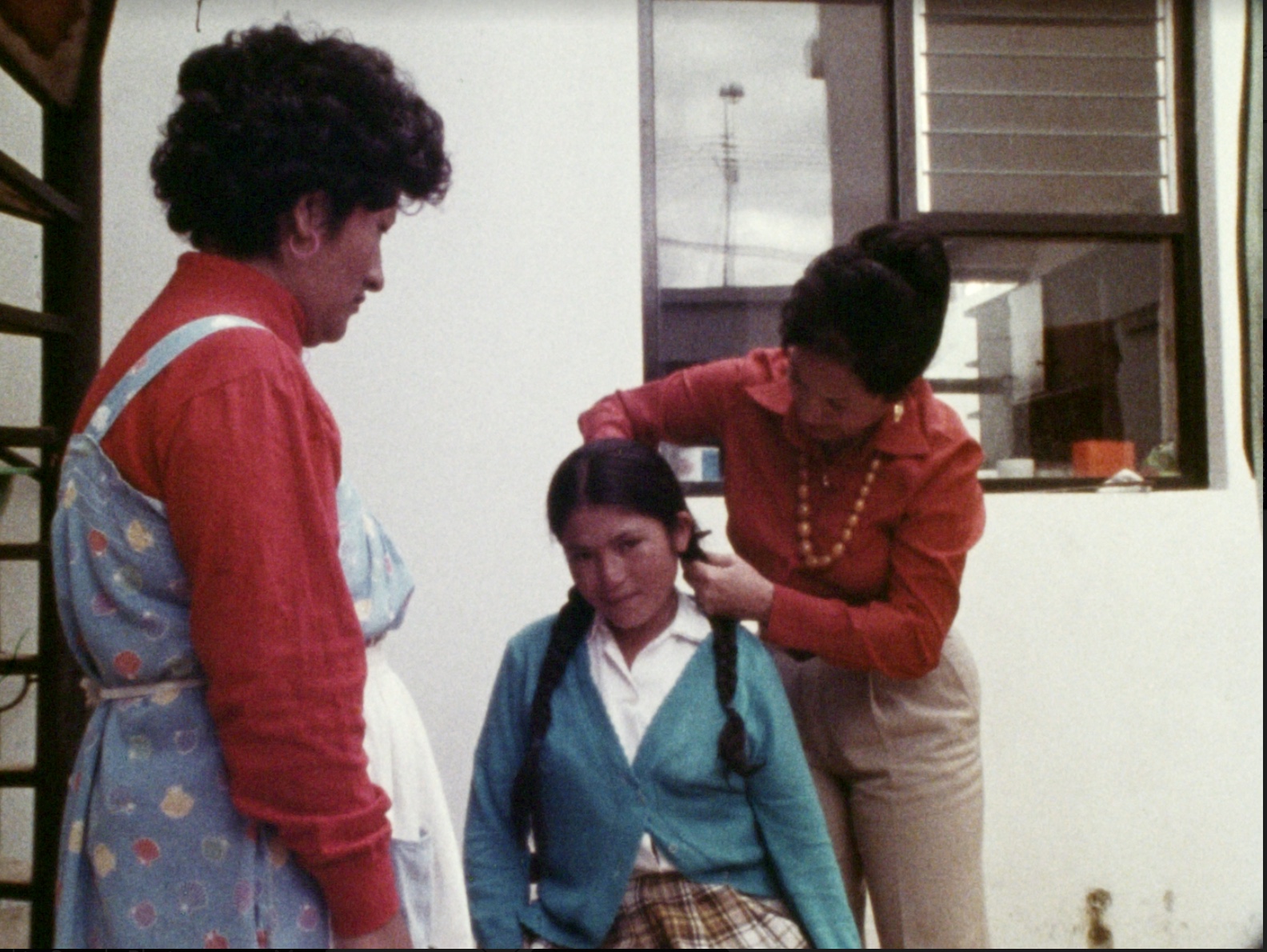Despite being a woman in the 20th century Latin American film industry (indeed industry in the last century general) almost entirely dominated by men, 81 year-old film director María Barea (born in Chancay, Perú in 1943) managed to create captivating films that clearly if gently, revealed the hardships that young innocent cholita’s coming into the city from remote rural areas had to face.
With her husband (Luis Figueroa whom she later divorced in 1980) Barea created a small film company, Pukará Films that produced films in the 1970s, like ‘Los Perros Hambrientos’ (The Starving Dogs -1975). Upset when she found herself sidelined by men with her contributions not properly credited and appreciated, she started working towards finding ways to give women, including herself, a voice, away from suffocating patriarchal attitudes.
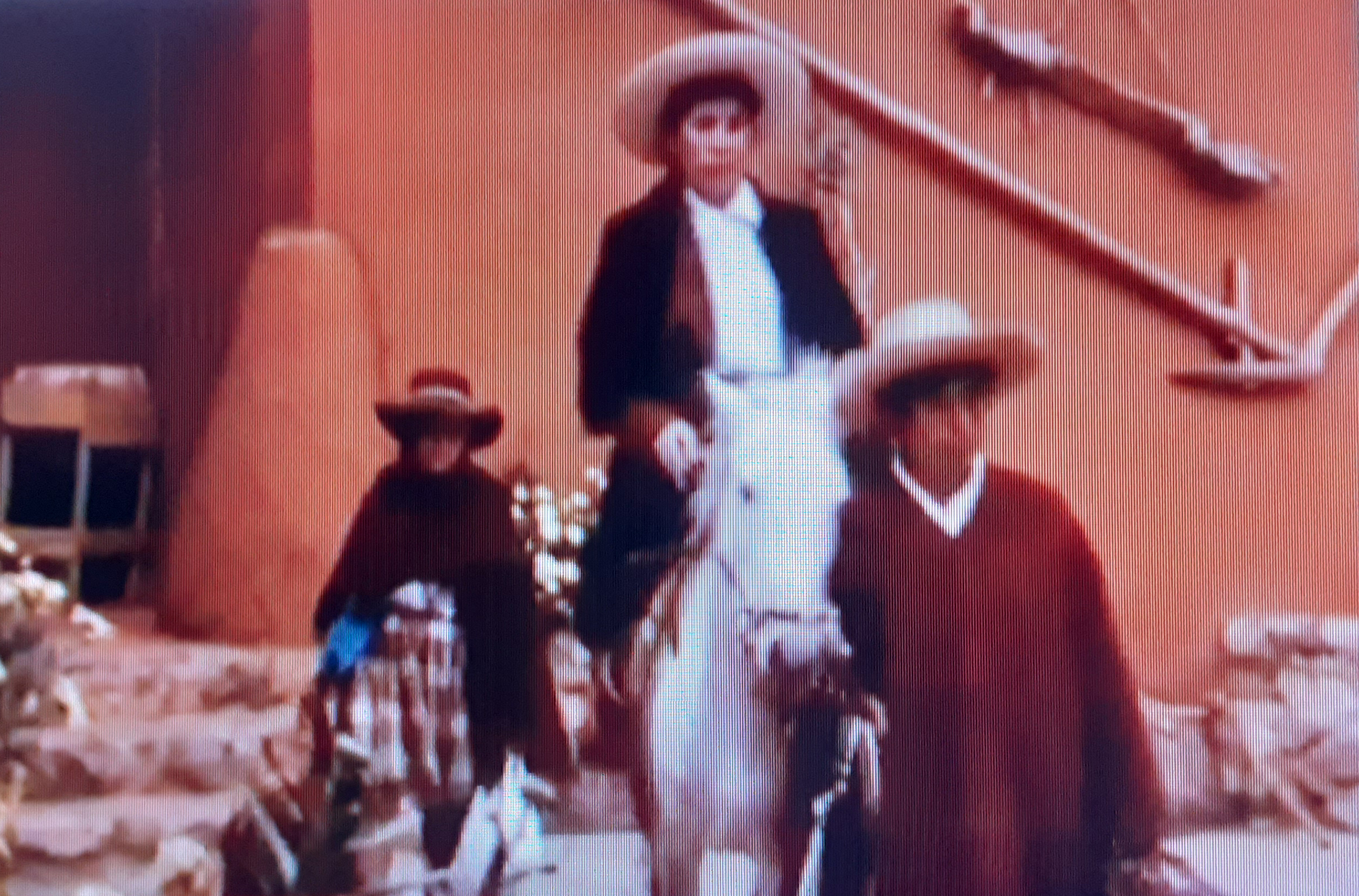
Antuca taken as a child to become a domestic
Barea’s first independent film was a documentary ‘Women of El Planeta’ (1981) that received an award at the Leipzig Documentary Film Festival in 1983. She continued to research her subject matter, meeting women in the ‘new towns’ (Lima’s shanty towns) that had risen almost overnight, due to mass migration from the Andean rural areas. This demographical movement coincided with an increase in the need for workers, and the call for domestic (home) workers in middle and upper- class homes.
The ethnographical work in the slums gave her the information she needed to further explore the plight of women and she gradually began to tell their stories, not from the point of view of the loser, the victim, but of the survivor and how they gradually created collectives to ‘give a voice to the voiceless’ as they fought to improve their rights. Barea had understood that film was a powerful tool in this process.
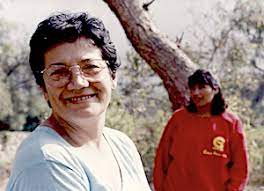 Maria Barea with Graciela Huaywa
Maria Barea with Graciela Huaywa
In 1982, she founded the Chaski Group with Stefan Kaspar, Fernando Espinoza, Fernando Barreto and Alejandro Legaspi. Rapidly, she understood that she was being sidelined yet again by the men, with a characteristic that she identified as a trait of the Left, and called it Leninist Machismo.
This disappointing start led her to create the WARMI group in 1989 with some female colleagues, including Micha Torres, which was to become the first Peruvian women-led film collective.
“In her work, Barea made use of emotional and intuitive types of thinking, committed to action. This is an applied form of creativity, in which the aesthetic form was used to reach transformative goals. This type of creativity invests in visual products that are designed to be usable in a practical communicative and educational way, not purely objects of contemplation.” (Jump Cut).
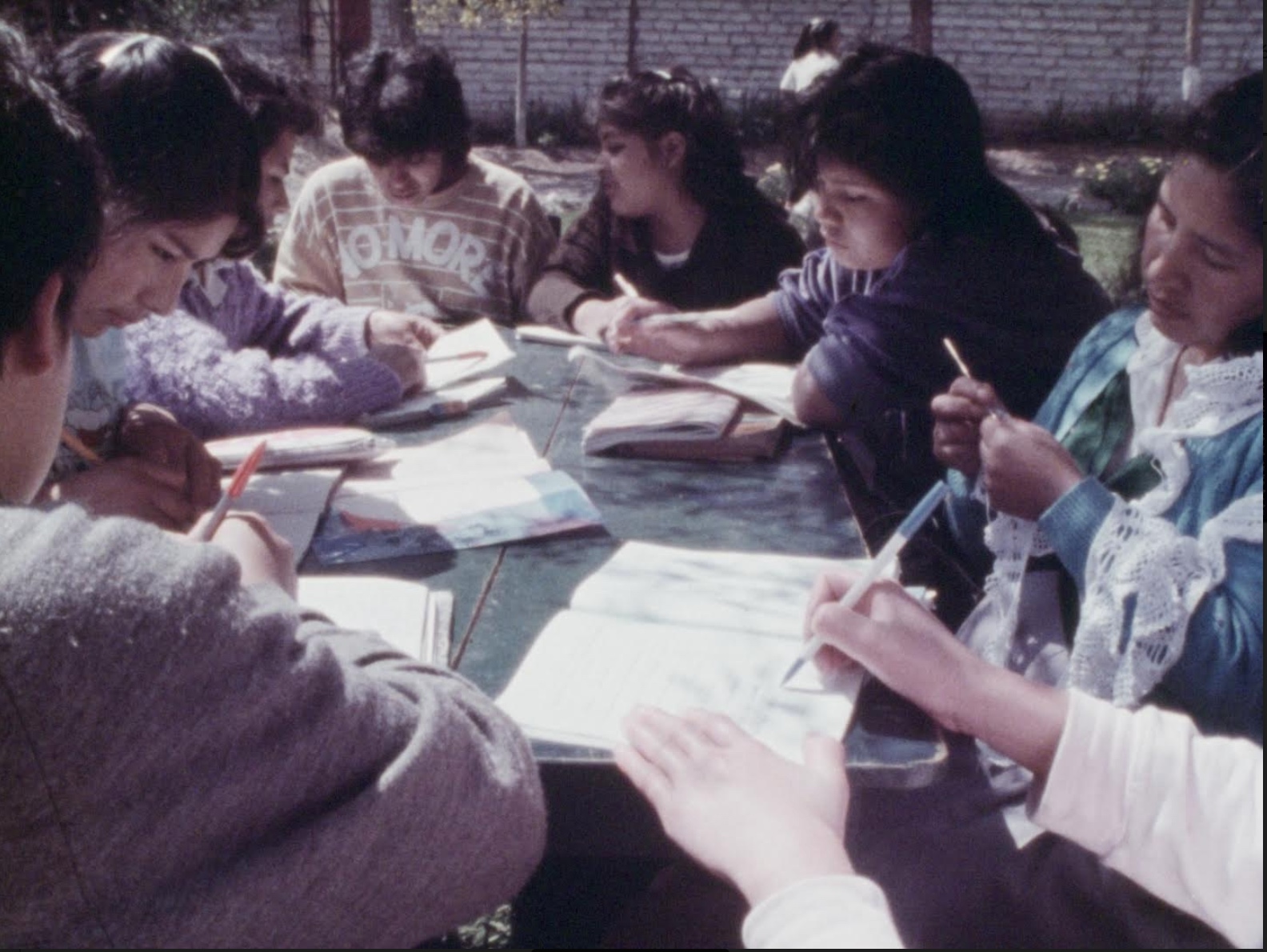
In ANTUCA (1992), Barea chose the charismatic Graciela Huaywa to lead the story, with two younger actors playing her as a child and adolescent. Abandoned by her mother in the rural area of Cajamarca when she was still a child, Antuca was sent to live with her Godmother (Petrila Rabanal) leaving her brother behind. Unable to cope with the responsibility, her Godmother sent Antuca to work as a maid for a family in Lima. There she was ill-treated, isolated and almost raped. This led Antuca to leave the house, risking homelessness in order to try to improve herself and try get some education and a better life.
Antuca is a feature film, ‘Porque Quería Estudiar’ (‘Because I wanted to study’) is a half-hour semi- documentary, that also features Graciela Huaywa. It expands on the same theme.
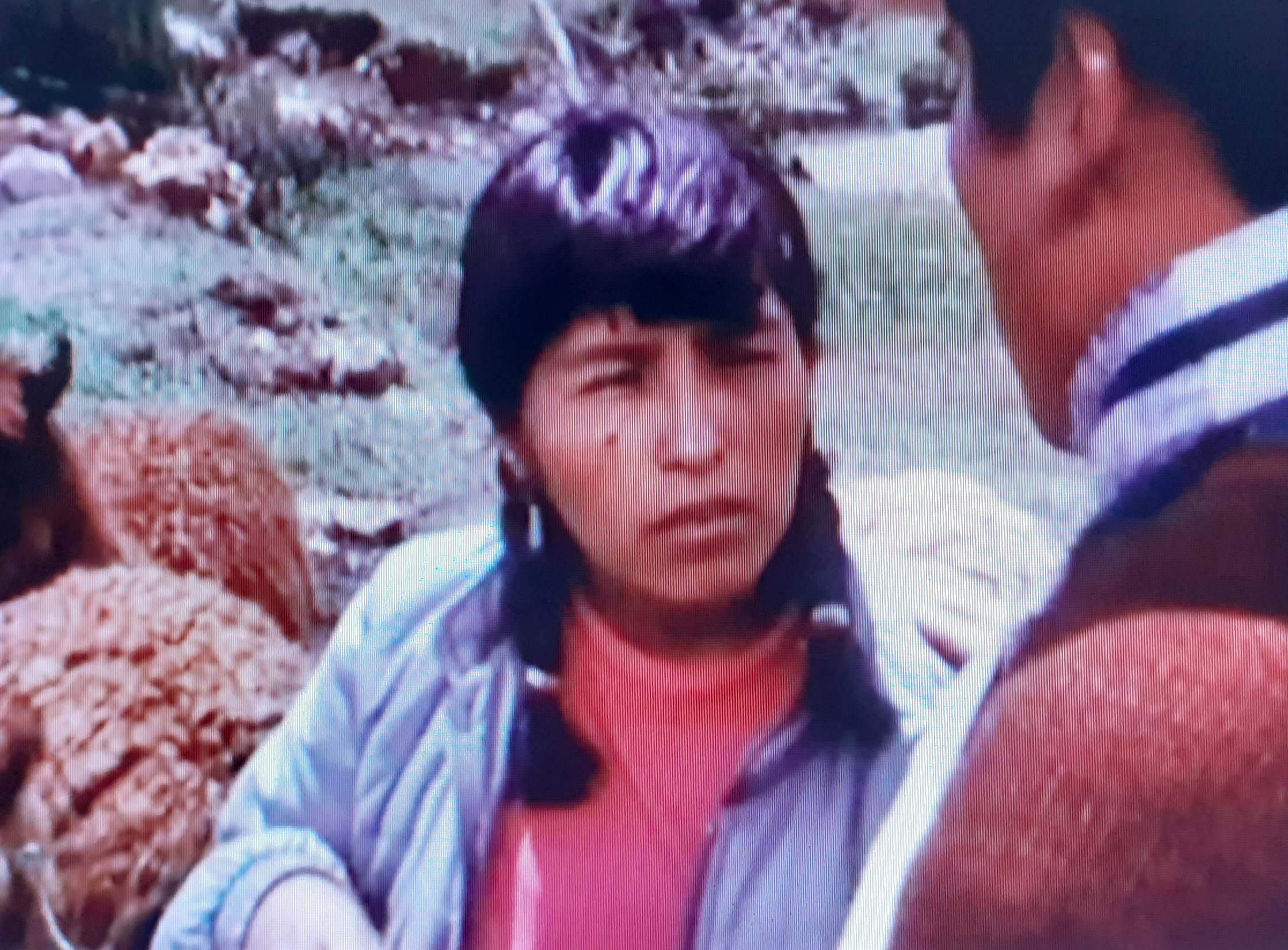
Graciela Huaywa as Antuca
The restoration of ANTUCA, beween 2023 and 2024 took place in the Basque country and was carried out by the Elias Querejeta Zine Eskola (EQZE) at San Sebastian, mainly by Film Archive students from Perú, México and the Basque Country within the framework of the project “Preservation of the films of María Barea and Warmi. First collective of women in Peruvian Cinema" in collaboration with Warmi Cine and Video from Perú.
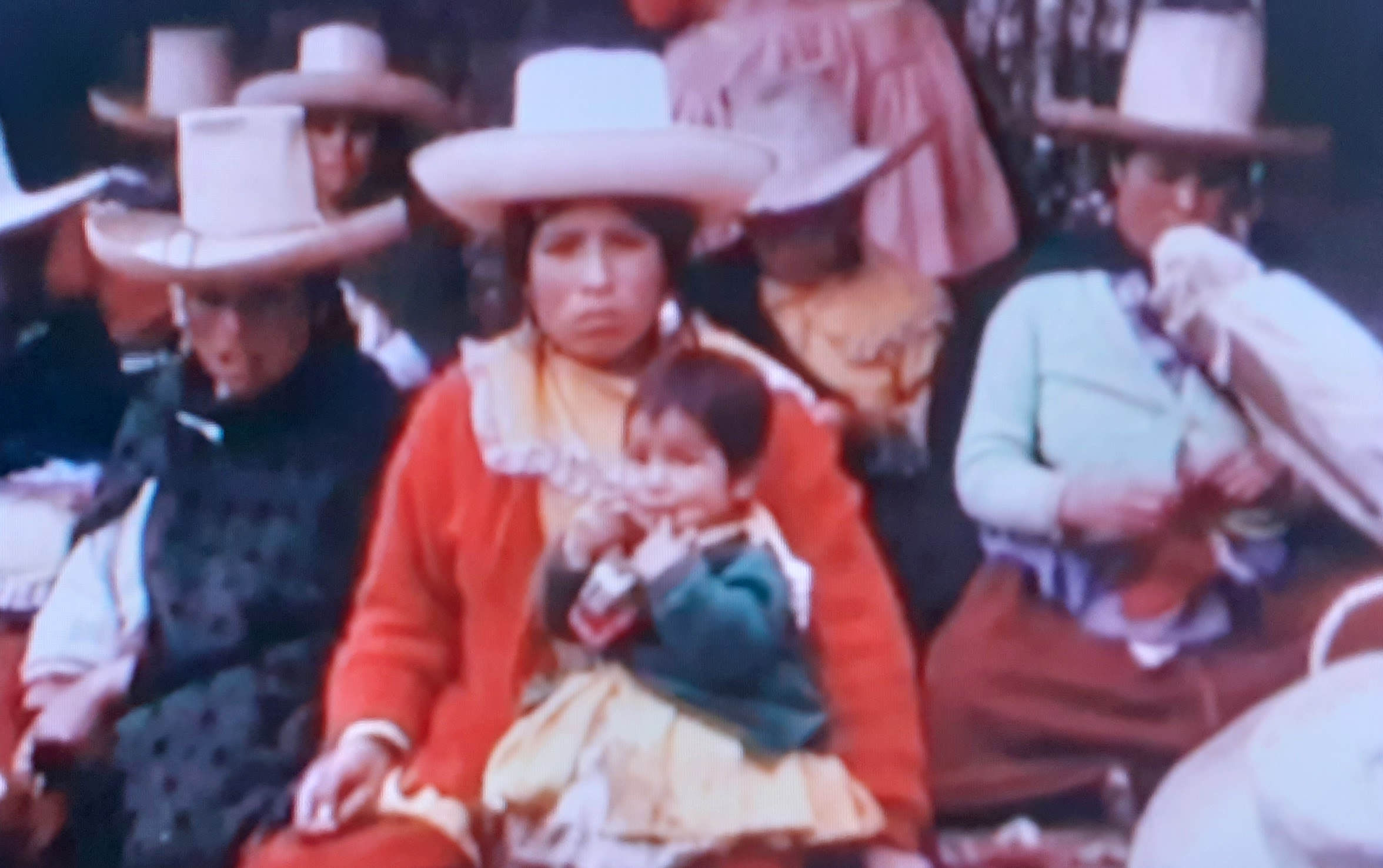
These two films have a captivating honesty and simplicity and reveal much of what life was like in the Sierra, from religious and mourning processions with much music, fiestas with bull costumes and masks, to the wonderful creation of crafts, spinning, both alpaca and sheep wool, creating patterned sashes and using home-made looms for other textiles. She does not flinch to show the hard life that people up in the meseta have to live, and when Antuca manages to return, hoping to see some of her remaining family, this becomes clearer than ever to her. Barea observes these communities with their wonderful hats (!) and allows the viewer to absorb the pace of life and gentleness in those communities that contrasts so much with the harsh realities of the towns like Lima. In the towns, filmed during the Fujimori dictatorship, we see armoured cars and tanks at every corner, making it even harder for anyone, let alone female domestic workers to protest or fight for their rights.
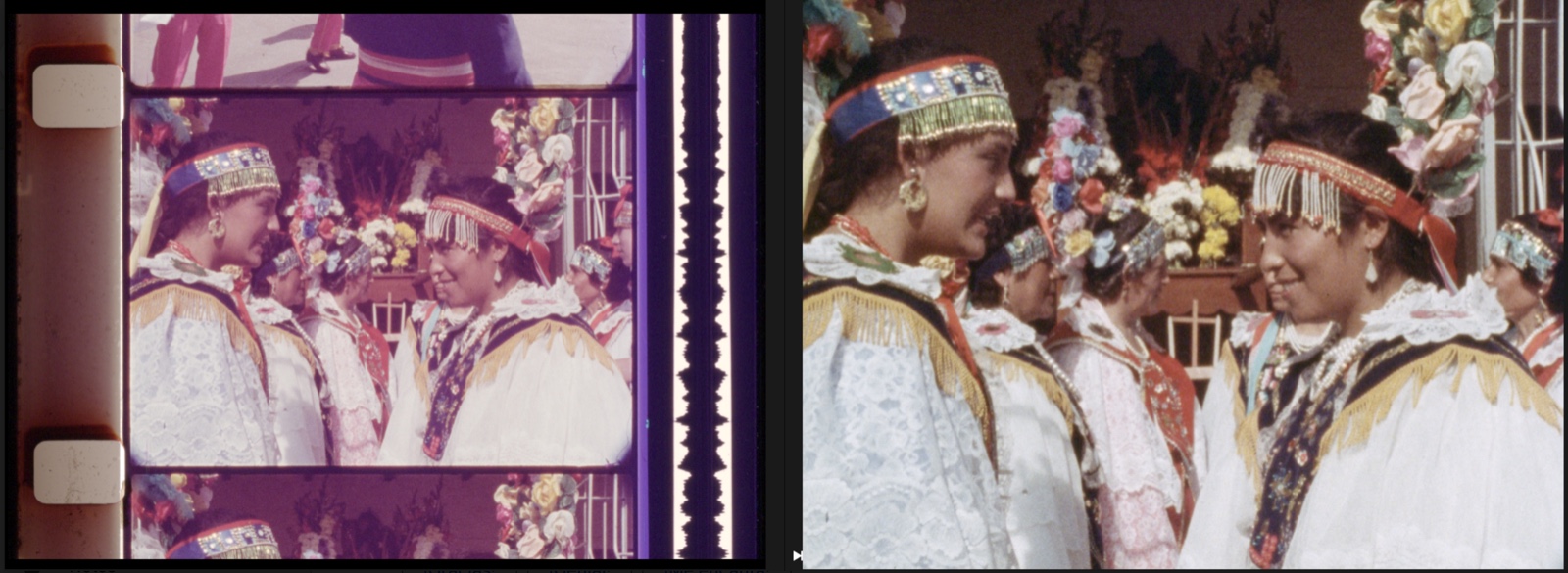
And Jump Cut writes: -
“Household workers are probably the most isolated and challenging to organize. Most are females who begin their working life as eight- or nine-year-old girls. They live under the domination of adults who make them work without a schedule, salary, or fundamental rights like schooling. Many of them suffer physical and sexual abuse.”
The charm of the characters and how they cope and survive, including Antuca herself, is very appealing, so that these films are not a dirge by any means. They highlight the difficulties but the optimism and desire to study, and improve their lot is inspiring.
Barbican Cinema June 3rd. ‘Antuca’ (1992) and ‘Porque Quiero Estudiar’ (1990) Screen talk with María Bara and Dr María Chiara D’Argenio with María Barea thanks to Cinema Restored and Open City Documentary Festival.
ANTUCA (1992)
Director María Barea/ Writers: María Barea and Giannina Belludo . DOP: Horacio Faudella and César Pérez/ Music Chalena Vazquez/ Production and Casting: Jenny Velapatiño and Mercedes Zevallos/ Editor: Gianfranco Annichini/ Sound: Rosa María Oliart/ Mixer: Bruno Bourgade (Paris)
Cast: Antuca: Graciela Huaywa Coiullanqui /actuación especial: Delfina Paredes /Catalina: Hilda Tito / Patron: Eduardo Cesti /Amigo de Patron: Gonzalo Rivero /Patrona: Cecilia Tosso / Artemio: José Valdivia Valdez /Madrina: Petrila Rabanal /Members of IPROFOTH: Home workers /Villagers: Community of Chilimpampa
Dr María Chiara D’Argenio is Associate Professor of Latin American Studies at University College London.


